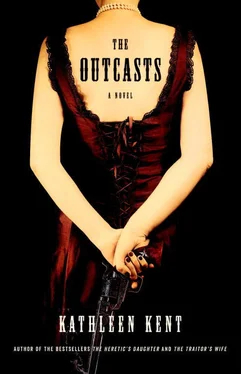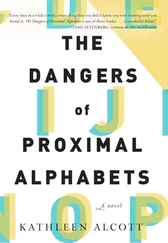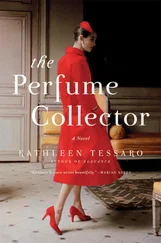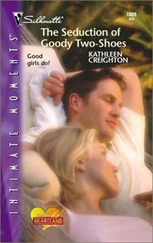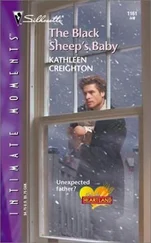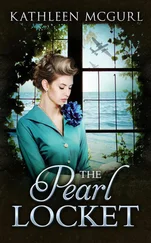“George,” Dr. Tom said, “you need glasses.”
Deerling put the paper aside. “My eyes are as good as they’ve ever been…”
Nate listened to the back-and-forth for a while, the rangers’ voices sounding like smoked bees, all buzz and no sting, and then he stood quietly and left the room. He saw to the horses and then bedded down at a boardinghouse, waking only to the sound of Deerling coming in for the night. But Deerling walked to the window, leaned against the sill, and remained there as Nate fell back to sleep. When Nate woke the next morning, Deerling was still in the same place, looking out over the street, his face lined and pale with worry, his chin unshaven for days.
“Tom says to go on without him,” Deerling told Nate. “We’ll ride to Frost Town to talk to that woman that survived McGill’s last shooting. There’s not much we can do here today.”
They reached Frost Town in a few hours—a German settlement with its own post office and school—and were directed by a livery hand to a large farmhouse fronting the bayou. The farmer who lived there was named Muller, and he led the men into the simple parlor, where his wife served them coffee and warm biscuits.
Muller said, “Mrs. Shenck has been deeply marked by the deaths of her husband and children. She is better in the body, but in the mind…” He pointed to his head and twisted his finger against his temple, like a screw being worked into a board.
Muller’s wife led them upstairs to a bedroom, and, after knocking softly, she opened the door and gestured them into the room. Nate followed Deerling and saw a woman reclining in a small bed, propped up against several pillows, staring out the nearest window. She turned her head to look at them with swollen eyes, and Nate removed his hat. He lingered by the door, not sure where to stand, but Deerling took the one chair in the room, moved it next to the bed, and sat.
“Mrs. Shenck, I’m Captain Deerling of the Texas Rangers, and this is Officer Cannon of the Texas State Police. We’re here to talk with you about the men who killed your family. Are you well enough to tell us what happened?”
She nodded uncertainly but remained silent. Nate watched the subtle movements of her body turning away from Deerling, and she placed a shielding, protective hand over her chest. Nate would have approached the woman more carefully. As with a battered horse, a wounded person had scant resources left even to keep the body upright, the eyes directed forward, and the mind balanced. He thought a good place to start would have been just to hold her hand for a while.
Finally she said, “There were three men. They came into our house one day. They had guns.” Her voice was low, the words softly accented. She took a sip of water from a glass next to the bed with shaking hands. “They said if we caused them no trouble, if we didn’t try to run away or tell our neighbors, they wouldn’t kill us.”
Deerling asked, “How long did they hold you?”
“They stayed for five days. I and the children cooked for the men, and they would come and go, two men leaving and one man staying behind.”
She became silent again, her focus softening as her head tilted towards the window. Deerling placed a hand on her arm, startling her.
She licked her lips and reached for the water once more. She said, “One night we heard them talking about a farmer who found gold coins on his land. Some sort of pirate treasure, he said. They bought him whiskey, to make him careless. But the farmer wouldn’t say precisely where the gold was.”
Deerling asked, “Who was the farmer?”
She shook her head. “They never said his name or where he was from. The leader of the men, this McGill, became angry with them for speaking of such things in our presence. But seeing I was scared, he took my hand and looked into my eyes and promised me that no harm would come to me or to my family.”
She clenched and unclenched her fingers entangled in the shawl around her shoulders. She stared wide-eyed at Deerling and said, “I believed him.”
Watching her pale and disbelieving face, Nate remembered seeing the same expression come over a Confederate deserter, a man at the end of a line of deserters about to be shot by his former comrades and thrown into a ditch. He thought of his own daughter and tried to imagine what her dying would do to him. And then he tried to imagine her being shot in his presence.
To comfort the woman, Deerling reached out and clasped her two hands in his. “Mrs. Shenck, thank God, you’re still alive.”
She began to breathe queerly, her gaze panicked, and Deerling stood up, alarmed. “Are you in pain, Mrs. Shenck?”
The woman thrashed on the bed, making sounds like an animal in agony, and Nate thought to fetch Mrs. Muller, but the woman fixed her eyes on him and he became very still, the hairs on the back of his neck prickling. He saw clearly the bruised flesh on her face and wasting tautness of the skin on her arms, and she whispered, “I am not alive.”
Mrs. Muller appeared at the door and ushered the men from the room. They went downstairs and were joined on the porch by Mr. Muller. The three stood for a while absently watching the looping banks of Buffalo Bayou, listening to the shrill weeping from the woman upstairs.
Muller said, “The devil shot her last of all. First the husband, and then the two children. The killer made her watch.”
Deerling asked, “Do you have any idea where these men went?”
Muller said, “In her ravings she said Harrisburg, but…” He shrugged, turning the palms of his hands up.
Deerling worked his hat in his hands. “Take the train west from Harrisburg and it stops at Alleyton and a few cotton farms. To the south, the railroad goes to Galveston.” He turned to Muller. “There’s nothing important in Harrisburg except the railroad depot.” He stopped for a moment, gnawing the inside of his cheek, and looked at Nate. “What do you think?”
“Well,” Nate said, shifting his weight to the stronger leg, “there must be drinking places in Harrisburg. Places where cotton farmers who have money to spend gather. Maybe our farmer is close by.”
Deerling nodded and said, “That’s where we’ll start, then.”
The two men thanked Muller, and within a quarter hour, they had turned south again, heading to Harrisburg.
Lucinda sat, listening to May sing. While the girl’s voice was not unpleasing, it had a curious lifelessness to it, as though the words were devoid of meaning. She was singing “Lorena,” a tune over which Lucinda had seen hardened men weep, thinking of their lost wartime loves. This in the cathouses where they were being entertained, their hands on the whores they had just had or were about to have.
Jane played the accompaniment on the square piano that had been shipped by barge from Galveston a few months earlier and that, surprisingly, had held most of its tuning.
Lucinda stole a look at Bedford Grant, the girls’ father, standing next to Jane and turning the pages of the music folio. He had been stiff and formal at dinner, a meal of chicken and mainly dumplings, and it had taken a great deal of effort on Lucinda’s part to help him keep his half of the conversation alive. She suspected that he had not had female company at his dinner table, other than his daughters, in a good while. She also suspected that his looser manner after the meal and his ruddy complexion were thanks to a furtive trip to a whiskey jar kept somewhere in another room.
He looked up at that moment and smiled, the open grin of a father’s pride. Lucinda gave him a slow smile in return, and he blushed a deeper crimson, quickly returning his attention to the sheet music.
After acquainting herself briefly with Bedford, she thought him a shy but intelligent man, flattened and embattled by the brutal uncertainties of life. He had, it seemed, failed at everything he had ever set his hand to, as speculator, merchant, and now probably as farmer, although, in recounting his past to Lucinda, he had framed his failures as “mistimed ventures” brought to unsuccessful ends by the inability of the South to secure secession.
Читать дальше
